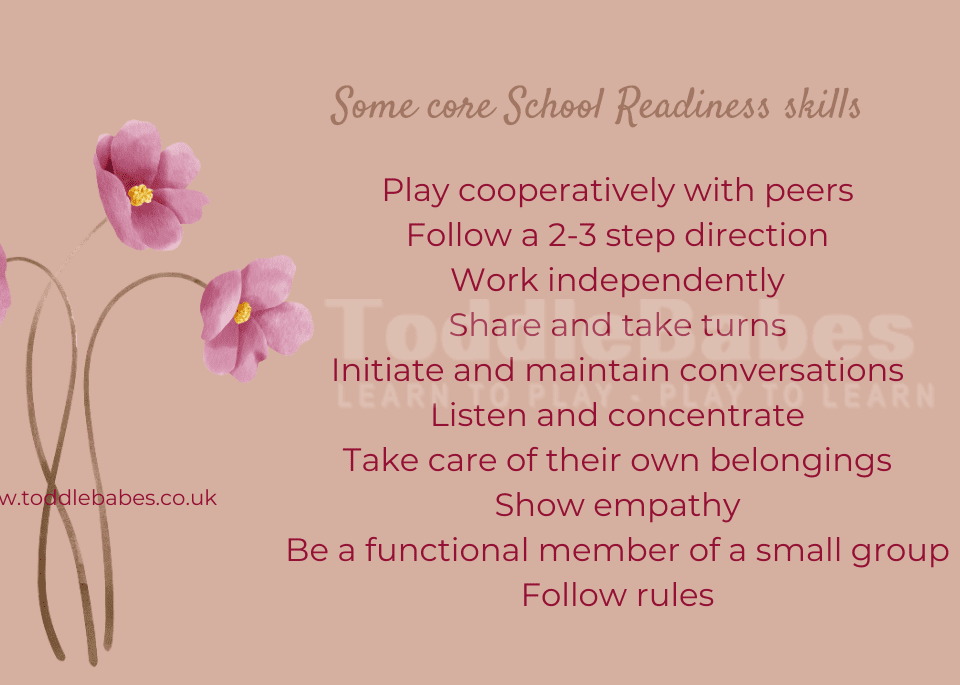
Setting a Bedtime routine for your toddler

Coping with Starting Pre-School

Parents naturally want their children to be the best, whether in academics or extra-curricular activities – or both! Young kids especially find happiness in pleasing their parents and would do almost anything to garner their approval – from doing simple chores and creating pretty artwork, to accomplishing more ambitious feats like winning in sports or beauty pageants. But how far can we push our little ones without breaking their spirit or setting them up for disappointment?
Pushing for Gold – Do you Know the Difference Between Motivation and Pressure?
Over-competitive parents usually have many expectations from their children. They are more particular with good grades and performance than with how happy the child is going through schooling or joining an activity. For instance, some parents are still not satisfied when a child receives a B grade, expecting instead of the perfect A. These parents see mistakes as unacceptable. Pointing fingers at who is to blame for the ‘failure’ of their child becomes their means to rectify the situation, ignoring the possibility that there are other factors and variables at play. The worst scenario is when explanations are sought from the children, who may not always know why they performed below expectation.
Table of Contents
Why Would Parents Demand Much From Their Children?
Here are several factors:
Family background
Continuing the family ‘legacy’ is important for most parents. For instance, if you come from a family of doctors, chances are, you will be expected to become one, too, regardless of your capacity or inclination. When one or both parents are achievers, they don’t see any reason for their talents not to manifest themselves in their children.
Economic stress
Some average income earners force kids to excel beyond their abilities so they can avail of scholarship grants and minimize the cost of schooling in their budget.
Children owe it to them
Many parents think that the formula to their children’s success is to provide them with everything. And since everything is given, there is no reason why they cannot excel.
“If her child can do it, why can’t mine?”
Hearing parents boast about their kids’ success causes other parents to feel envy and even self-doubt. Because they feel this way, parents then put more pressure on their kid.
Effects on Children
There is a constructive side to instilling competitiveness: children tend to strive more and see for themselves what they are really capable of.
Financial gain is another advantage. If your child performs well, he can be awarded scholarship grants and get good offers when he or she reaches high school or college levels. Prestige and popularity come with the territory, too, because ‘the ability of the child shines.’
Through instilling competitiveness in our children has its benefits, experts agree that potential negative ramifications outweigh the positive. The following are some of them:
Children become misguided
When the pressure is too much, the child no longer sees knowledge and the acquisition of knowledge as goals. The grade has become the premium whether or not he or she learns anything that is of value to him or her. Also, the child becomes an unfriendly competitor.
Children can get easily frustrated
Children under great pressure become very unhappy with one or two little mistakes. They may start blaming themselves for the slightest setback. They may start having sleepless nights. They will take every mistake of failure as the ‘end of it all.’ This kind of mindset – where personal worth is measured by grades, accolades, and other quantifiable achievements – can be detrimental to their self-perception.
Children become fearful
With expectations set high, children may fear punishment from their parents every time they fall short. If children have difficulty in certain subjects or areas, they need support and guidance early on. However, since they are afraid of ‘disappointing’ their parents, they will not come out and say, “I am having a hard time understanding this.” Nothing is resolved; no course of action is taken.
This fear of failure also translates itself into children’s unwillingness to take risks, to explore, or to try something new, thus stunting their development.
Children develop over-dependence on parents
Children under tremendous pressure from their parents are usually unable to think for themselves. How happy they are with their achievements depends on how happy mom and dad are. They feel that their parents approve of every move they make.
Children become socially isolated
Constant bragging of parents about their children to others may not always be graciously received. This may even create a wall between the child being bragged about and others (friends, the school, community, even relatives). A child may develop either an unhealthy superiority or inferiority complex. The feeling of being better than everybody else, because a child was constantly drilled that he or she is, can result in ostracism by peers. Similarly, feeling inferior to others may cause children to retreat into their shells.
Children measure self-worth with achievements
When children hear their parents comparing them with others, it only translates to two messages: either “Mommy and Daddy love me because I am perfect,” or “They say I’m not as good as the other kids.”
Thus, the need to succeed arises, but only to satisfy the desire to be accepted and be loved. Before anyone notices, what begins as self-doubt escalates into serious anxiety, which can lead to more serious problems, such as power struggles, eating disorders, and depression, even at a very young age.
Children need to know that they will be loved whether or not they receive any accolades. Preschoolers, in particular, should be guided more on mastering age-appropriate skills that will serve as their foundation for later learning, not on reaping awards or medals. The universal rights of children include not only the right to have food, shelter, and education, but the right to play as well. Therefore, it is important that parents find ways for children to also relax and have fun.
Be confident of your children’s lead: Let them learn at their own pace, and be there to hold their hand when they need it. Keep in mind that accomplishments in infancy, toddler years, and preschool years do not necessarily predict a child’s success in adulthood.
Just as parents do best, love and accept your children for who they are. Allow them to be themselves and hit that road the way they see it. Each child is unique. Respect their ways of learning, growing, and thinking. Ultimately, children’s true measure of greatness depends on the guidance and values their parents give them.
Quiz: Are You A Push-For-Gold Parent?
A ‘yes’ to more than three of these signs means you have to lighten up a bit!
- I feel extremely disappointed and worried when other children reach milestones earlier than my child does.
- During family gatherings, I urge my child to perform tricks for everyone whether he or she likes it or not.
- My child has the best voice in class, so he or she deserves to have the center spot in the special number.
- It doesn’t bother me when other parents tell me about their kids. My child’s accomplishments always outdo theirs.
- I always ask my child’s scores in quizzes and exams, then ask what his or her classmates’ scores were.
- I always air out my complaints to my kid’s teacher whenever I feel that my child didn’t get the grade I think he deserves. I demand explanations and don’t give up until I am satisfied with the answers.
So, do you expect too much from your Kids?
I am a preschool and primary school teacher and mum to 3 children. I have been involved in education since 1997 and have trained in a variety of educational specialist areas. It is with this expertise that I write articles to help parents and educators provide quality learning experiences for the children in their care.




